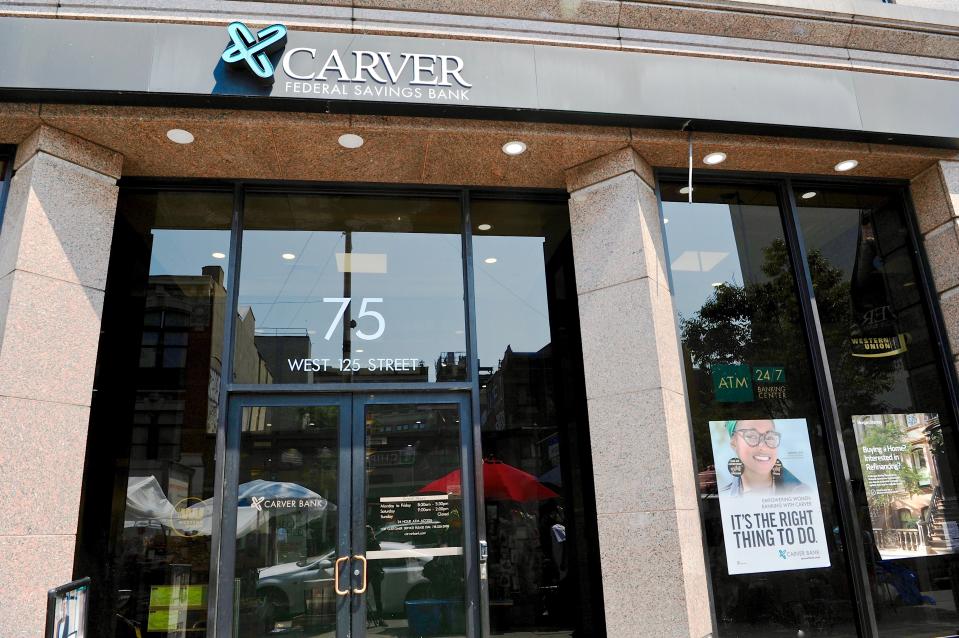Carver in New York rejects unsolicited takeover offer

Carver Bancorp in New York said it jettisoned an unsolicited takeover bid.
The $743 million-asset Carver, parent of the 75-year-old Carver Federal Savings Bank in Harlem, said its board reviewed and rejected an offer by Dream Chasers Capital Group to acquire a 35% interest in its common equity.
Had the $3.25-per-share offer been accepted, it could have given Dream Chasers a controlling stake in one of the nation's most prominent Black banks. The offer represented a more than 100% premium to Carver's stock price when it was made in November. However, in a press release Wednesday, Carver called the offer price "unrealistically low" given the bank's "intrinsic value."
Carver's shares have climbed above the $2 level several times since the offer, but they hovered just below that threshold intraday Thursday.
The bank also said its board determined that Dream Chasers had "unsubstantiated financial resources" and an "anticipated inability" to obtain regulatory approval for the purchase of a material interest in Carver or to "qualify as a bank holding company." Carver further noted a "lack of direct experience of Dream Chasers' leadership with a federally regulated and insured depository institution."
American Banker sought more details about the factors behind the offer's rejection, but the bank's interim CEO was not immediately available for an interview.
"As a result of its evaluation, the board definitively determined that an association with Dream Chasers of any type is not in the best interest of Carver, its shareholders and its community stakeholders," the bank said in its release Wednesday.
Dream Chasers did not respond to an interview request in time for this report. In its release announcing the $3.25-per-share bid, Dream Chasers noted that over the past few years, the bank had lost money and struggled to maintain consistent deposit levels, among other challenges, and its stock price had dropped as a result. Carver's shares topped $11 in 2022, but they have since failed to come close to that level.
"We encourage shareholders — retail and institutional — to demand a change of control," Dream Chasers said with its latest offer in November, which it had raised from a previous $3-per-share bid.
Carver is a certified community development financial institution and a designated minority depository institution. Its former president and CEO, Michael Pugh, resigned last September following an eight-year run at the helm of Carver. The company named veteran investment banker Craig MacKay its interim president and CEO.
In a November letter to investors, MacKay noted that, after past struggles, the company had grown loans and deposits in 2023, while maintaining strong credit quality. This, he argued, positioned the bank for bottom-line improvement and stronger performance on behalf of shareholders.
"In January 2023, the bank emerged from a formal agreement with its primary regulator, concluding a period of enhanced oversight, foundation-building, capital-raising, technology upgrades, and portfolio rationalization," MacKay wrote. "Carver is now a better capitalized and more capable bank with solid liquidity."
Dream Chasers, for its part, said in a release last week that it recently met with Carver's board and reiterated its offer.
"Current stock market shareholders large and small expect management to get a deal done with Dream Chasers," the fund said in that release. Dream Chasers said its offer "would raise millions in much needed capital for the bank to grow its balance sheet." As part of the deal, it would "bring in a new set of executive talent and board members that the fund believes would help the bank turn into a multi-billion dollar in deposit and assets institution, potentially growing revenues and profits significantly in an accretive way."
